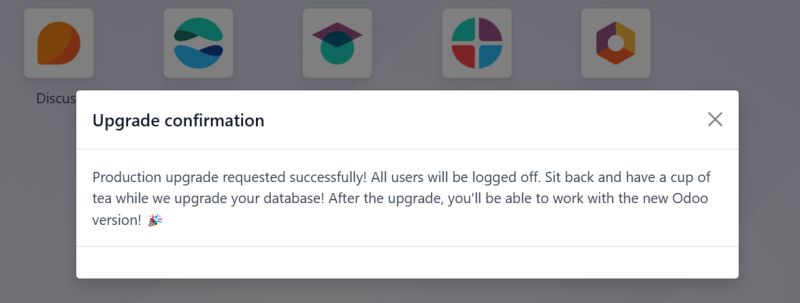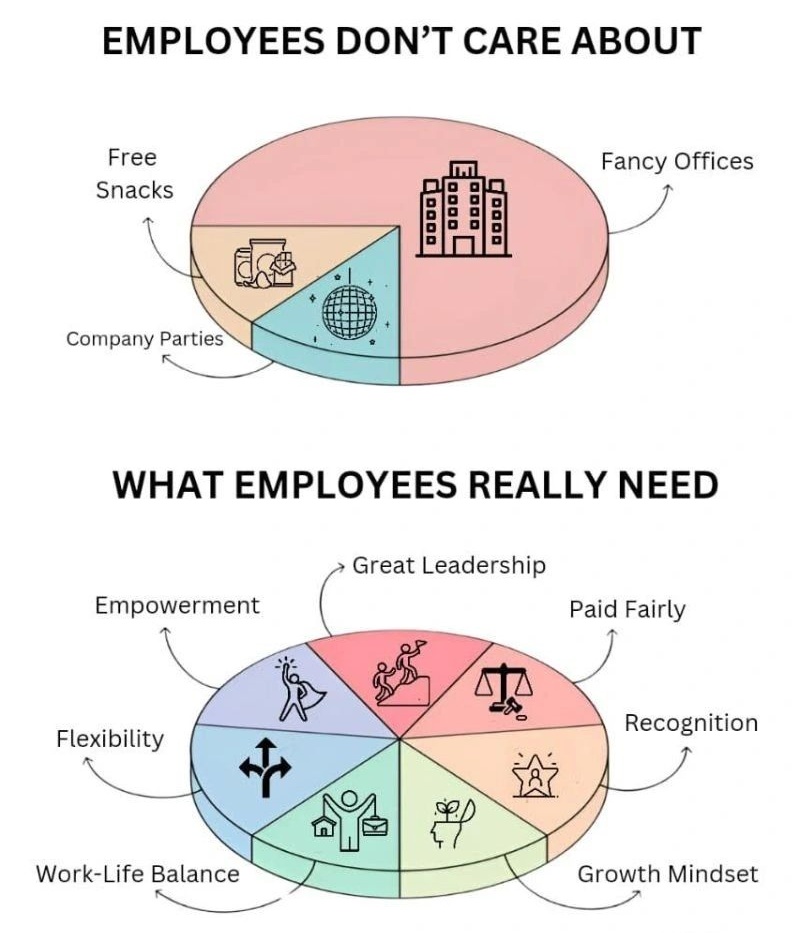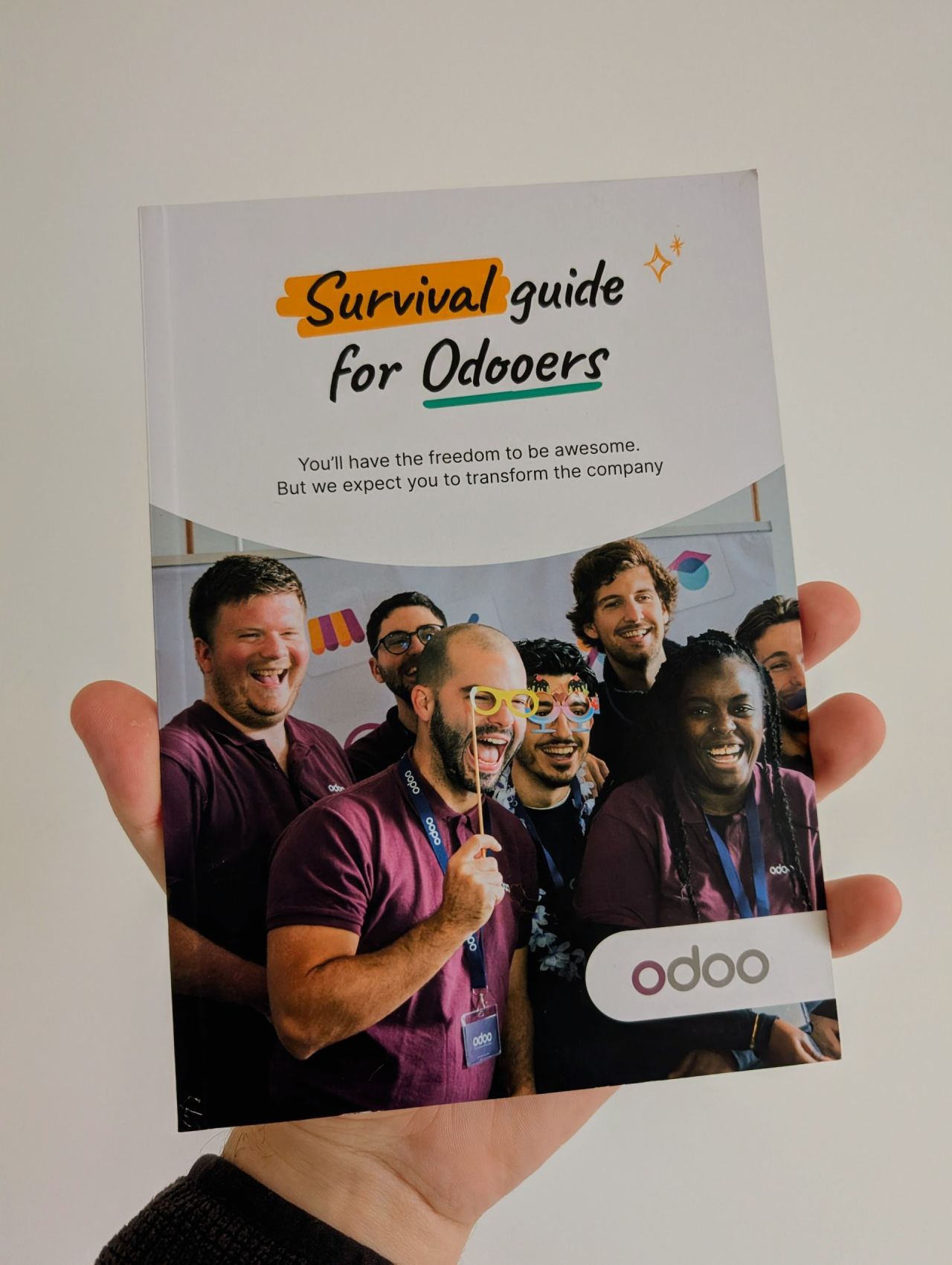- It's fit for purpose (you will never have to look for another tool).
- Inventory, Accounting, Sales, CRM are very solid.
- E-Commerce is pretty good.
- Its FAST!
Some tips:
- If your trying to run a business don't self host, host it on a virtual private server (VPS).
- Keep it simple, just host it on a cloud infrastructure.
- If you don't need any customizations, then just use Odoo Online.
- Just remember if you can't get it done in Odoo Online, it's probably not that profitable anyway, and you'd gain more by changing your process or using a different approach.
- Don't forget the 80/20 principle.
The most common mistake with software implementation is trying to customise it to suit business processes put in place because of previous software and not analysing the underlying business problems you are trying to solve.
The 3 biggest ERP lessons I learned in 2024!
Let’s be real - ERP in 2024 was a wild ride.
Looking back, here are 3 big ERP lessons I learned this year:
1️⃣ AI in ERP? First, Fix Your Data Chaos
2024 was all about AI-powered ERP, but here’s what no one tells you
→ AI is only as good as the data feeding it
I’ve seen companies excited about AI features only to realise their data is messy, outdated, or full of gaps. Guess what happens next? Bad insights, wasted time, and frustration.
That's why you need to know AI won’t save you if your foundation is broken.
2️⃣ Customization is a Lifeline… Until It’s a Trap
Customization sounds great - until it turns into a money pit. Some businesses tweak their ERP so much that upgrades break, costs skyrocket, and they get stuck with a system they can’t scale.
Lesson? Balance is key. Odoo’s modular design gives you the flexibility to adapt - without locking yourself into an over-engineered mess.
3️⃣ The Cost of Doing Nothing is Bigger Than the Cost of ERP
The biggest myth? “We can’t afford an ERP.”
But the reality is that businesses keep wasting thousands on inefficiencies, errors, and disconnected systems.
In 2024, companies that delayed ERP adoption are still drowning in spreadsheets. Meanwhile, those who switched to an ERP like Odoo, they’re scaling, streamlining, and saving.
The longer you wait, the more it costs you. The best time to implement ERP was yesterday. The second-best time? Right now.
Ever heard about this?
Yeah, me too, only a couple of days ago.
The frustration was palpable.
Their initial strategy was to simply copy the old system into Odoo—same fields, same workflows, same problems.
This approach seemed cheaper initially.
The result?
… 🥁Pure chaos.
Disorganization
Minimal benefits
Unreliable information
and a frustrating user experience.
Now they're spending 3x to fix what should've been done right the first time.
A system migration isn't just a technology change—it's an opportunity to reimagine how your business operates.
Before migrating, always ask: "Why are we moving to Odoo if we're just replicating our old tool?"
Ask yourself. Ask your partner. Ask your Odoo point of contact. Ask your dog.
Don't transfer your old problems into new software. Migrate with intention.
Using the Odoo Online with standard features, for many businesses, is more than enough to support and improve their day-to-day activities. If you can find the harmony between Odoo's features and your operation requirements, staying up to date with new versions is a breeze!

Many businesses expect their new ERP to solve all their problems.
It doesn’t.
Odoo won’t make untrained employees productive.
It won’t fix poor workflows.
It won’t eliminate bad decisions.
What makes an ERP work?
A team that understands the process.
Clear, repeatable workflows.
The right people in the right roles.
Software enhances what’s already working.
It won’t fix what’s broken.
What to do about it right now?
Arrange a call with our Solutions Team to understand how Odoo's pre-built workflows align with yours to see how much we can fix in your business.
It just won't be everything.
Here's what they're not telling you...

The truth about employee loyalty isn't what most leaders think.
Here's what actually keeps employees committed to their companies:
1. Trust & Recognition
• Employees who feel recognized are 45% less likely to leave within 2 years
• Simple gestures like public praise and personalized thank-yous make a massive difference
2. Work-Life Balance
• Flexible schedules decrease job stress by 20%
• 80% of workers would stay loyal if given flexible work options
3. Growth & Development
• Clear career progression paths
• Investment in skill development
• Opportunities for advancement
4. Fair Compensation
• Competitive salaries matter more than ever
• A mere $1/hour decrease in pay can spike turnover by 28%
• Comprehensive benefits including health insurance and retirement plans
5. Workplace Culture
• Supportive environment
• Mental health support
• Focus on employee wellbeing
The Hard Truth:
Money alone won't keep your best people.
Companies winning the loyalty game are the ones creating environments where employees:
- Feel valued
- Have control over their time
- See clear growth opportunities
- Receive fair compensation
- Experience genuine recognition
Want to boost loyalty?
Start by asking your team what matters most to them. Then actually listen.

|
Keep it simple from start! A simple solution will probably be cheaper A simple business process will bring value to the end users A simple implementation will be the most efficient |
|
Simplification! If it doesn't work out of the box, there is a good chance you have an unnecessarily complex process. Integrations with other systems may be required but think through any development carefully. |
|
If you have an issue, go on LinkedIn and @Fabien Pinckaers . Odoo is the only ERP where the CEO actively gets involved in the community and directly answers your questions and helps push fixes if he thinks they are useful. |
|
Excessive customization can undermine the effectiveness of your Odoo implementation. Focus on utilizing Odoo’s standard features to their fullest potential, and avoid unnecessary customizations, even minor ones, as they can complicate processes and impact long-term efficiency. |
|
One really useful tip is to start with only the essential modules to avoid feeling overwhelmed. Then gradually add more modules as you grow. This approach works well for both individuals and companies. What are essential modules? I would say the CRM module is a perfect example, as it's essential for most companies and as it covers most needs. We typically install it as one of the first modules for our clients while we're customizing other modules for their specific needs. |
|
First, focus on high quality data for products & contacts. Then focus on your basic business processes. It depends on your company, but sales, inventory and accounting are common. Get basic business running first and learn how to manage it. |
|
When talking about daily tasks, keep an open mind and stay focused on the outcome, not the workflow. This is particularly important in accounting, bank reconciliation for example: Odoo´s workflow is easier and more intuitive that other software like QB (some may disagree). The point is, you´ll get your banks reconciled fast and easy (outcome) although the steps to do it will differ from the old ways (workflow). |
|
I would say start with accounting and then work outwards to bring things into Odoo app by app over time. When we have seen people come back to accounting at the end, it's much harder and there are all sorts of wrong accounting done alone the way since it wasn't set up correctly. Best to get accounting right as the base and grow from there. |
|
Be curious, look further and try differently... Maybe changing the perspective and apply a workaround will make everything better. |
|
Before making any customizations, always check Odoo forums, slides, and the OCA repositories to see if there's a better way or a built-in workaround within Odoo. Sometimes, even minor customizations can cause significant issues or disrupt existing functionalities. |
|
Don’t fall into the trap of customization during initial implementation. Odoo has many features. Also important to take a good consultant on your side so implementation will go smoothly. |
|
Leverage the Odoo documentation and forums—they’re goldmines for solving issues and learning from the community. |
The greatest ROI-driver for a new ERP revolves around improving operational efficiency.
By streamlining processes and automating tasks, one can reduce costs, minimize errors, and enhance productivity (= significant savings and increased profitability over time...)
Other key ROI-drivers are:
- Enhanced data accuracy and visibility
- Improved customer satisfaction
- Scalability (can grow with your business, accommodating new processes and departments without significant additional costs....)
The primary outline of topics and thoughts in this article were gleaned from a posting on Reddit. I've edited, tweaked and massaged it to more accurately align with my own thoughts and beliefs.
"How much does Odoo cost?" is asked all the time. The answer is usually a frustrating "it depends."
The Odoo license fee is most often the smallest expense.
If you are trying to create a realistic budget, it is important to recognize that you are not just buying software; you are buying a complex, custom project.
1. The Licensing Cost: Community vs. Enterprise
This choice sets the stage.
Odoo Community: The license is free. But "free" is not "zero cost." It's missing the full Accounting, Manufacturing (MRP), advanced Inventory modules and much more. You'll end up paying a developer to build these features. Also, this option requires you have your own hardware or at least do your own installation/configuration on whatever platform you choose to use. Community does not have an option whereby the database is hosted on Odoo's own servers.
Odoo Enterprise: This is the paid, per-user subscription. It includes all the powerful apps and official support. Further, there are multiple hosting options to choose from, two of which include hosting on Odoo's own servers and one that allows hosting on your own platform of choice (much like Community).
Opinion: For any serious business, Enterprise almost always has a lower Total Cost of Ownership (TCO).
2. The Real Cost: Your Implementation Partner (This is 50-70% of Your Budget - if not more)
If the Odoo software is the "raw material"; then your partner is the "architect" and the "builder." The fee you pay them for their expertise and time is the single biggest cost in any project.
Your implementation partner's services include:
Discovery & Planning: Mapping business processes.
Configuration: Setting up the standard Odoo modules to work for you. Customizing (but not pure development) where applicable.
Training: Teaching your team how to actually use the new system.
Many organizations try to skip the planning, leading to great frustration at best, a failed project at worst. Using the old carpentry adage of "measure twice, cut once", the Discovery & Planning phase is the measuring. Configuration and Training are the cutting.
3. "Hidden" Costs Traps
This is where many projects struggle, some fail.
Trap 1: Data Migration
You have years of data (customers, orders, invoices) in your old system. You can't just "copy-paste" it. That data is "dirty" (full of duplicates, errors, old info).
A partner has to run full "Extract, Transform, Load" (ETL) processes. This is a complex mini project in itself. Some suggest budgeting at least 15-20% of your project time just for this.
Trap 2: Customization
Odoo has been around for many years and has millions of users. Based on this broad scope of experience, their indigenous processes will often be the best way of doing things. However, not always. This is where powerful configuration and customization options come into play.
Configuration is using Odoo's built-in settings.
Customization is tweaking Odoo using some indigenous tools to enhance the functionality beyond out of the box defaults.
Custom Development is the biggest of potential cost factor of all. It includes writing custom code, modules or apps and requires ongoing upkeep and maintenance over time. Custom development often adds considerable expense to upgrading Odoo as well.
Practically nobody uses Odoo out of the box, exactly as is. It is designed to be configured and customized to meet your specific needs. Each decision needs to include careful thought regarding long term expense and risk.
Trap 3: Post-Launch Support
The project is not over at "Go-Live." Your team will have questions. Bugs will be found. You need to be sure and plan for post-launch support.
So, What's a Realistic Budget?
The numbers and even percentages will vary greatly from project to project. One simple formula worthy of consideration might be:
(Annual Enterprise License Cost) + (Your Partner's Implementation Fee) + (15-30% Customization/Data Budget) + (Ongoing Support Retainer)
Don't just budget for the software license. The license is maybe 10% of your total first-year cost. The real investment is in the expert partner you hire to plan, implement, customize, and migrate your data.
Some people feel that choosing your partner is far more important than choosing the software.